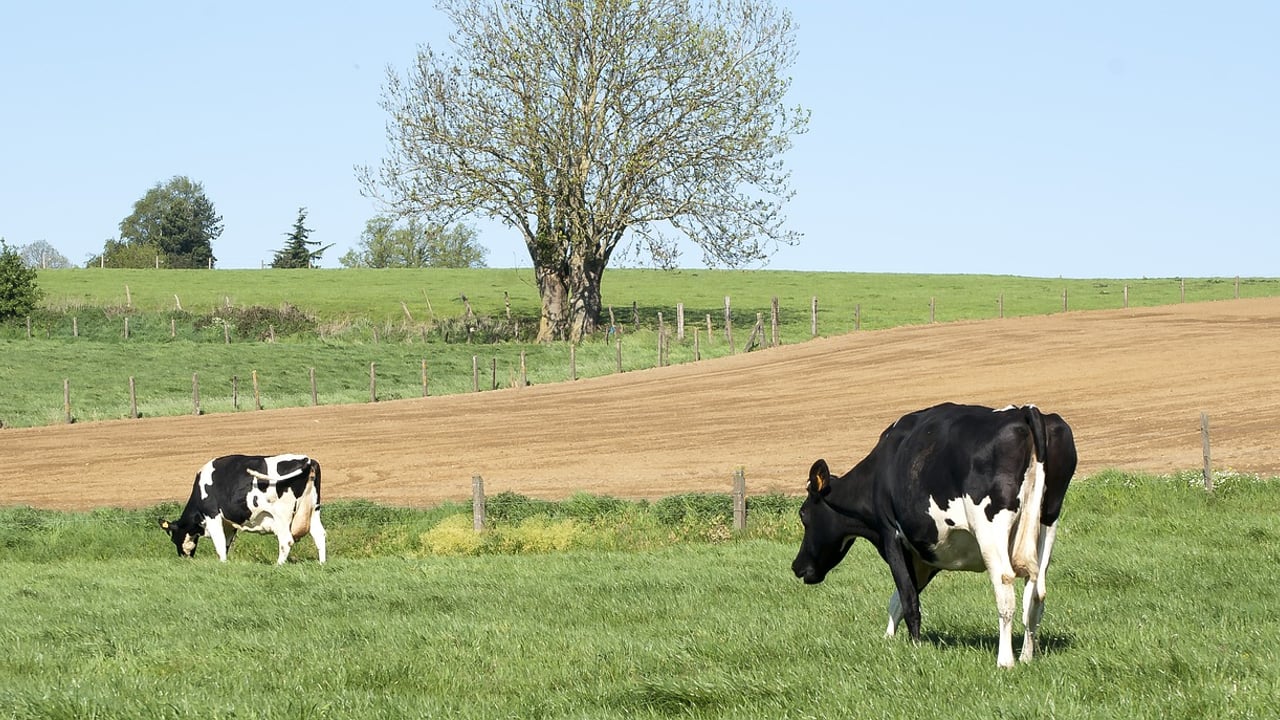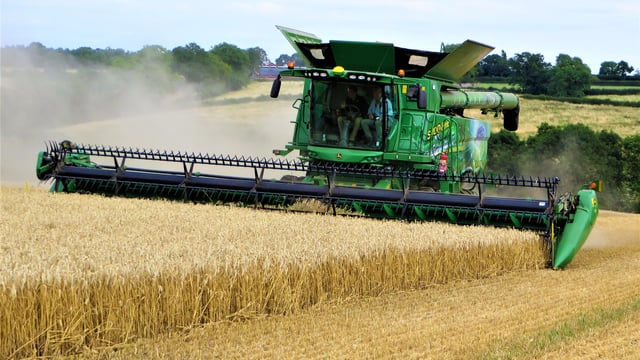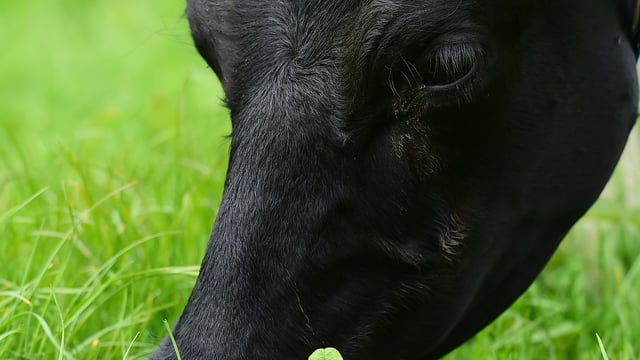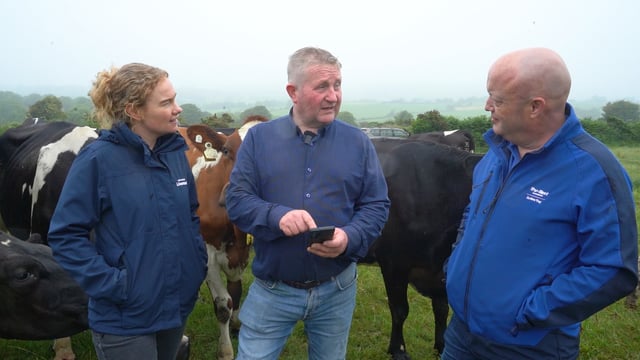Minister publishes official department plan to keep derogation
Minister for Agriculture, Food and the Marine Charlie McConalogue has published his department's official plan to progress the objective of retaining Irelands Nitrates Derogation post-2025.
In May, Minister McConalogue, together with Minister Darragh O’Brien, under whose department (Housing, Local Government and Heritage) the nitrates regulations are administered, brought a memo to cabinet outlining the on-going and future work to secure the renewal of Ireland’s Nitrates Derogation from January 1, 2026.
On foot of this memo, a whole of government approach in support of those efforts to see the derogation extended "was secured", according to the Department of Agriculture, Food and the Marine.
According to the department, "substantive" actions (some of which are already underway) outlined in this newly-published plan include:
- 50 ‘water quality advisors’ paid for by government and industry are providing a free service to farmers to improve water quality in priority areas;
- A €60 million innovation programme has been put in place to financially support actions by farmers;
- A ‘Better Farming for Water’ advisory programme has been put in place by Teagasc;
- The 70% Nutrient Importation Storage Scheme (NISS) will open for applications this week;
- A new and separate ‘exempted development’ threshold for ‘stand-alone’ nutrient storage will be provided for as part of a review of planning regulations, following the enactment of the Planning Bill;
- Sanction being sought from the European Commission to apply a 60% grant and separate ceiling of €90,000 for farmers for nutrient storage from January 2025;
- Following the conclusion of the Nitrates Action Plan (NAP) review "further agreed measures will come into effect";
- Department of Agriculture to carry out environmental and economic assessments and modelling of impacts;
- Teagasc to conclude research into slurry and soiled water production;
- John Comer has been appointed as chair of the Agriculture Water Quality Group;
- Commission officials to visit Ireland in September.
Speaking today (Tuesday, August 20) following the publication of the plan, Minister McConalogue said: “A derogation is available to Ireland based on specific scientific criteria such as a long growing season. The Irish government is committed to seeking a further derogation and delivery of improvements in water quality is a critical component of supporting this request.
The plan pulls together work done to date by the Agriculture Water Quality Working Group (WQG); the additional measures under the Nitrates Action Programme (NAP); and the on-going projects that will "help Ireland to improve water quality and secure the derogation".
The plan, which is titled 'Water and agriculture - a collaborative approach', includes a range of measures under five key areas:
- Regulatory measures;
- Government financial support for farmers;
- Government, industry and farmers working in tandem;
- Further measures and actions;
- Securing Ireland’s next nitrates derogation.
Minister McConalogue commented: “Many actions under these five headings are already taking place, such as the reduction in chemical nitrogen limits and the transition by all farmers to Low Emission Slurry Spreading (LESS). Other measures are new and will commence imminently.
"For example, the 70% capital investment grant aid for nutrient importation scheme (NISS), introduced in Budget 2024, will open for applications this week. Sufficient slurry storage is vital to the effective use of organic nutrients and the protection of water courses," he added.
"To further support and facilitate investment in nutrient storage, alongside the continued accelerated capital allowances...government has secured approval from the European Investment Bank for qualifying investments, in nutrient storage, to be automatically eligible for the green financing discount rate under the Growth and Sustainability Loan Scheme."
The minister went on: "To further enable farmers to build storage...following enactment of the new planning regulations, a separate exempted development threshold will be introduced in respect of stand-alone manure storage facilities.
"I am also seeking to amend the Rural Development Programme and the CAP Strategic Plan to allow for a 60% grant rate and a dedicated €90,000 ceiling for nutrient storage investments. I am working to have this rate and ceiling in place for January 2025, subject to European Commission approval," he added.
On-going research and collaborative action among government and industry is also anticipated.
“I requested that Teagasc would lead a multi-actor water quality advisory campaign to deliver clear, simple and positive messaging to enhance both farmer and industry understanding of the agriculture pressures on water quality and the need for improvement," Minister McConalogue said.
"I want to acknowledge industry also, who are not only engaging with the government-funded €60 million Farming for Water EIP (European Innovation Partnership), but are spearheading their own water quality programmes too.
"It is such collaboration by all agriculture stakeholder partners that will see the dial turn for our water quality," the minister commented.
Minister McConalogue also welcomed the appointment of a new chair of the WQG. The group from its next meeting will be chaired by John Comer, who is a farmer and past president of the Irish Creamery Milk Suppliers' Association (ICMSA).
Minister McConalogue noted the importance of the role of the European Commission and other EU member states in the ultimate fate of Ireland's nitrates derogation.
“It is not within the gift of the Irish government to renew the derogation as it is applied at EU level. [European Commissioner for the Environment] Virginijus Sinkevičius, on his visit to Ireland (in November 2023), was clear that, for Ireland to maintain the nitrates derogation, that water quality that is good must remain stable and water quality that is less than good must show improvements," the minister said.
He said that he has wrote to the commissioner inviting his officials to visit Ireland in 2024 to see the progress being made to date on water quality by farmers and the agri-food industry.
The minister confirmed that this visit will take place in September and that work on a "substantial itinerary" is in train.
"It is by working together, all of us, the government, farmers, industry and the European Commission, that the derogation will be secured into the future. This plan is recognition of what has already been done and steers us toward the progress that can be achieved through collaborative action," Minister McConalogue said.





